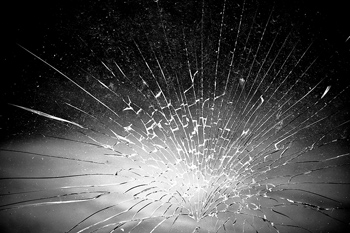A Few Little Things
I was listening to the Beeb on the way home from work today. A commentator put forth the possibility that the increased capital requirements of Basel III may actually increase risk taking by banks by forcing them to make the same profits with less money to start with. This statement struck me as perfectly illustrative of the complexity and likelihood of unintended consequences of financial regulation. It also re-emphasized the wisdom of Glass-Steagall in drawing clear lines between Investors, Brokers and Bankers. Any given entity should be one and neither of the other two. Only in this way can the moral hazard of one’s activities be reasonably addressed by regulation.
In other news regarding my media consumption today, I just found my way to Stephen Budiansky’s Liberal Curmudgeon blog this evening via a link from Lexington’s blog over at the Economist. He might be the best political writer that I have ever read on either left, right or center. Following is an excerpt from his post decrying the outrage at the proposed “ground zero mosque.”
But there’s a problem that goes much deeper than simple hypocrisy and inconsistency with the entire notion of reverence for a place where we became victims of an act of war. When I was writing my book Air Power, one fact I came across took my breath away as much as I thought I knew about World War II, and it still does every time I encounter it anew. In eight months of air raids over Britain from September 1940 to spring 1941, German bombers killed 40,000 British civilians, seriously injured 50,000 others, demolished hundreds of thousands of houses and damaged millions more. Leonard Woolf, in his extraordinary memoirs, describes the haunting silence the morning after an especially heavy German bombing that seemed to have left half of London in ruins; vast piles of rubble in the streets blocking traffic everywhere; almost no one moving about; losing his way again and again as he tried to walk across town to his office, unable to find a single familiar landmark other than the dome of St. Paul’s now and then appearing in view.
It is hard in this age of endless memorialization to even express this view without sounding callous: but Londoners did not turn their entire city into a “hallowed ground” or a shrine for the dead or a monument to British victimhood. They rebuilt, they went on, they rightly saw that the truest memorial to the dead was to show the Nazis that their city would rise again as if the Nazis had never existed on the face of the earth. I have always felt a deep discomfort similarly with the entire holocaust-memorial and holocaust-study industry. As a Jew, I hate the idea that the defining fact of my people’s entire history should be what the fucking Nazis did to us.
There is a great Spanish proverb: olvidar la injuria es la mejor venganza: to forget an insult is the greatest revenge.
